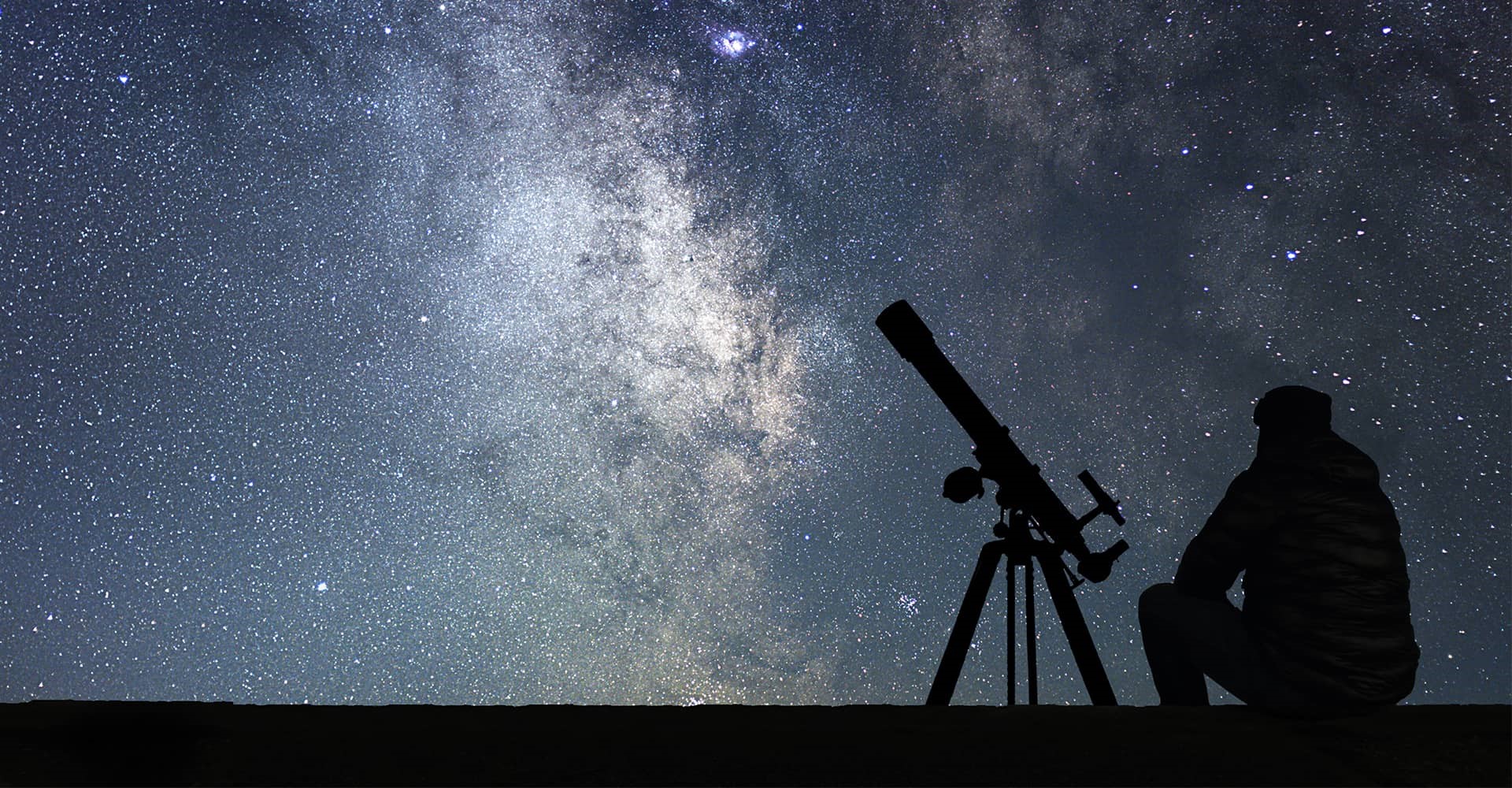ASTRONOMY
- INTRODUCTION
- CAREER OPPORTUNITIES
- COLLEGES
- COLLEGES IN ABROAD
- SPECIALISATION
- SKILL SET
- ELEGIBILITY
- ROLES AND RESPONSIBILITIES
Do stars, Sun and Moon Excite you ?
Have you wondered how do we have life on Earth but not other Planets?
If you want to Explore the Universe , Unravel its History , solve its Puzzle then Astronomy is the right Career for you.

Astronomy is the scientific study of celestial objects in the universe
Astronomists study and gather data on the movement, nature, constitution, history and possible future developments of heavenly bodies like the sun, planets, stars, comets, meteors, galaxies, asteroids etc.
They apply laws of mathematics and physics to unravel the mysteries of the universe. They collect and analyse data on celestial bodies, develop and test theories, and write research papers.
- Teaching in Astronomical Institutions including IIA
- ISRO
- DRDO
- Astronomers
- Technology Information Forecasting & Assessment Control (TIFAC)
- NASA
| College | Location |
| Indian Institute of Astrophysics (IIA) Main Campus | Bengaluru |
| The Vainu Bappu Observatory (IIA) | Kavalur, Tamil Nadu |
| Kodaikanal Observatory (IIA) | Madras |
| The Gauribidanur Observatory (IIA) | Hanle |
| Indian Astronomical Observatory (IIA) | Leh |
| Centre for Applicable Mathematics (Tata Institute of Fundamental Research ) | Bengaluru |
| Homi Bhabha Centre for Science Education (Tata Institute of Fundamental Research) | Mumbai |
| International Centre for Theoretical Sciences (Tata Institute of Fundamental Research) | Bengaluru |
| National Centre for Biological Sciences (Tata Institute of Fundamental Research) | Bengaluru |
| National Centre for Radio Astrophysics (Tata Institute of Fundamental Research) | Pune |
| Centre for Interdisciplinary Sciences (Tata Institute of Fundamental Research) | Hyderabad |
| Inter-University Centre for Astronomy & Astrophysics (IUCAA) | Pune |
| Raman Research Institute | Bengaluru |
| Physical Research Laboratory | Ahmedabad |
| Department of Physics (Panjab University) | Chandigarh |
| Department of Physics, Aligarh Muslim University | Aligarh |
| Indian Institute of Science | Bengaluru |
| School of Applied and Pure Sciences, Mahatma Gandhi University | Kerala |
| School of studies in Physics and Astrophysics, Pandit Ravi Shankar Shukla University | Raipur |
| Department of Physics, Cochin University of Science and Technology | Kerala |
| Swami Ramanand Teerth University | Maharashtra |
Additional Info , After 12th Class:
Indian Institute of Space Science and Technology, Kerala
Course: 5-Year Dual Degree in Master of Science in Astronomy and Astrophysics
Eligibility: Candidates must have secured at least 75% aggregate marks in the Class XII In PCM
Selection Process: JEE Main & JEE Advance
As Astronomy /Astrophysics specialization is offered at Master degree level.
Osmania University : University College of Science, Hyderabad
Course: M.Sc. Astronomy
Eligibility: A candidate must have passed the B. Sc. degree examination of the O.U., or its equivalent, with requisite percentage.
Selection Process: Common Entrance Test (OUCET) conducted by the University
Punjabi University , Patiala
Delhi University , New Delhi
Savitribai Phule Pune University, Pune
Indian Institute of Astrophysics, Bangalore University , Bangalore
Course: Ph.D In Astronomy
Eligibility: MSc/Integrated MSc in
- Applied Physics/Engg. Physics
- Applied Mathematics
- Astronomy
- Electronics
- Photonics/Optics
- Physics
Selection Process: IIA Screening Test (IIAST)
Extra Information:
The Inter-University Centre for Astronomy and Astrophysics (IUCAA)
Introductory Summer School in Astronomy and Astrophysics
Time: 5 weeks during May - June of every even-numbered year.
Eligibility: Students completing B.Sc. or 2nd year of B.Tech. / B.E. / Integrated M.Sc. are eligible to apply.
Note: It is designed to introduce students to the exciting fields of astronomy and astrophysics (A+A). No previous knowledge of Astronomy and Astrophysics is necessary, though familiarity with the basic principles of mathematics and physics is required.
| Institution | Location |
| Massachusetts Institute of Technology (MIT) | United States |
| Harvard University | United States |
| University of Cambridge | United Kingdom |
| Stanford University | United States |
| University of California, Berkeley | United States |
| University of Oxford | United Kingdom |
| Princeton University | United States |
| California Institute of Technology (Caltech) | United States |
| University of Tokyo | Japan |
| ETH Zurich | Switzerland |
Astrometeorology - Astrometeorology is the science of forecasting weather by assessing the movement and position of celestial bodies. Astrometeorologists apply their knowledge of the relationship between weather and the sun, moon, stars etc. to make predictions about weather.
Astrochemistry - Astrochemistry combines the principles of astronomy and chemistry, to study the formation, interaction and destruction of chemical elements that are found in space. Their study encompasses elements at a scale much larger than the solar system.
Astrometry - Astrometry is concerned with the tracking of the position and movement of celestial bodies. Astrometrists take precise measurements that allow them to trace the coordinates of various stars, planets and other bodies.
There are two main areas of astronomy:
Observational astronomers - collect data from satellites and spacecraft using radio and optical telescopes, develop software, interpret images captured by satellites, and analyse data.
Theoretical astronomers - create complex computer models to develop theories on the physical processes occurring in space, analyse the results of past observations to develop new predictions.
- Analytical skills
- High imagination
- Problem-solving
- Mathematical and Computer skills
- Patience to work long for irregular hours
- Excellent oral and written communication skills
- Most colleges have eligibility criteria of minimum 50% aggregate marks in Class XII with Physics as a main Subject.
- Sc. Physics, Astronomy and Astrophysics are available as courses only in select colleges.
- Physics and Mathematics are required as main Subjects in Class XII and Under graduation.
- Most of the institutes for post-graduation require bachelors in Physics and related subjects.
- Calculate orbits, and determine sizes, shapes, brightness, and motions of different celestial bodies
- Team up with other astronomers to carry out research on projects
- Develop theories based on personal observations of the space, or on observations and theories of other astronomers
- Measure radio, infrared, gamma, and x-ray emissions from extraterrestrial sources
- Present research findings at scientific conferences and in papers written for publishing in scientific journals
- Plan and conduct scientific experiments and studies to test theories and discover properties of matter and energy
- Do complex mathematical calculations to analyze physical and astronomical data, such as data that may indicate the existence of planets in distant solar systems
- Design new scientific equipments, such as telescopes and lasers







